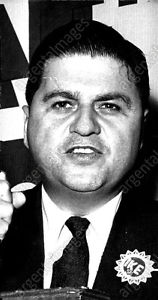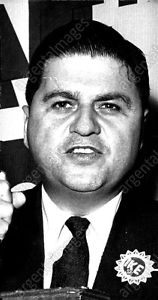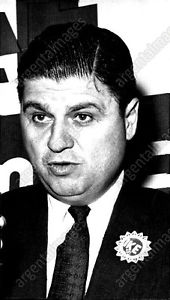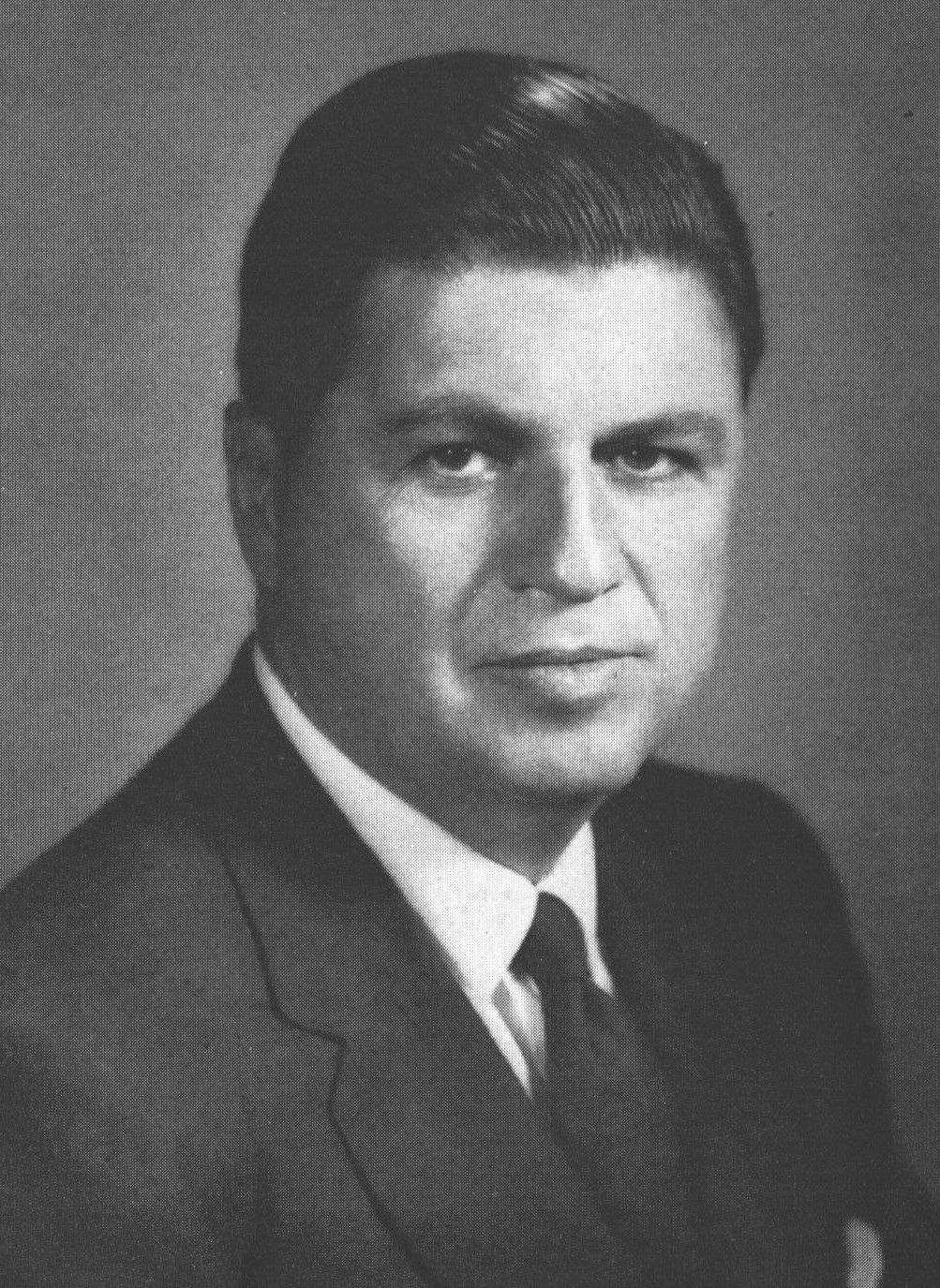NEW YORK, N.Y. -- Maxwell M. Rabb, 91, a New York lawyer who served as ambassador to Italy during the Reagan administration and as secretary to the Cabinet under President Dwight D. Eisenhower, died June 9 at New York Hospital-Cornell Medical Center in New York. Rabb owned an estate on Wilson Hill Road in Colrain, Mass., for many years.
Rabb's death was attributed to injuries sustained in a fall while walking to work in Manhattan on June 4.
In the early 1950s, while serving in the White House, Rabb played an important behind-the-scenes role in desegregating public facilities in the District of Columbia. In the late 1960s, while practicing law in New York, he made 23 trips to East Germany to broker the release of Americans being held on espionage charges.
Rabb was ambassador to Italy from 1981 to 1989. During that period, the Reagan administration also used him on other assignments. For example, he helped arrange the sale of AWACS planes to Saudi Arabia.
The normal rhythm of diplomatic life was sharply interrupted for Rabb shortly after he took up his duties in Rome, when Italian police uncovered a Libyan plot to assassinate him. This was said to be in retaliation for the downing by U.S. fighters of two Libyan jets over the Gulf of Sidra. The American planes were carrying out exercises over the Gulf, which the U.S. considers to be international waters, when they were attacked by Libyan planes.
The incident had little effect on Rabb's official duties, but for the remainder of their years in Rome, he and his wife, Ruth, were under guard. Mrs. Rabb remarked that they could no longer go out to dinner on short notice because it took an hour to make security arrangements.
A modest, unassuming man with a reputation for wit, Rabb was long familiar with the corridors of power. He had wide-ranging contacts in business and political circles in this country and abroad. A lifelong Republican, he was involved in efforts to persuade Eisenhower, then the commander of NATO, to seek the Republican presidential nomination in 1952. He also was an early backer and fund-raiser for Reagan.
When Eisenhower became president, he created the position of secretary to the Cabinet and appointed Rabb to fill it. The job involved organizing the weekly Cabinet meetings that were a prominent part of the Eisenhower administration and keeping track of decisions that were made.
Eisenhower also used him on other matters, notably a directive to desegregate public facilities in Washington. He also was adviser on the dispatch of federal troops to Little Rock, Ark., to desegregate Central High School.
These actions by the White House persuaded the late Rep. Adam Clayton Powell Jr., the New York Democrat from Harlem, to back Eisenhower in his re-election campaign in 1956.
Rabb, who purchased his 560-acre Colrain retreat around 1970, told The Recorder a few years later that his familiarity with Franklin County dated back to when he served Sen. Henry Cabot Lodge as an administrative assistant and became involved in the gubernatorial campaign of Greenfielder John W. Haigis Sr.
He said the only time he ever considered running for electoral office was at the very start of his political career.
Rabb was born in Boston. He graduated from Harvard University and its law school. After briefly practicing law in Boston, he moved to Washington in 1937, as administrative assistant to Sen. Henry Cabot Lodge Jr., R-Mass. When Lodge resigned to enter the Army in World War II, Rabb worked for Sinclair Weeks, who was appointed to fill Lodge's unexpired term. Rabb then joined the Navy himself.
After the war, he was an aide to James Forrestall, the secretary of the Navy, and a lawyer in Boston. He returned to Washington to work in the Eisenhower White House from 1953 to 1959. From 1959 to 1981, he practiced law in New York, where he was a partner in the law firm of Stroock & Stroock & Lavan. At the time of his death, he was counsel to the firm of Kramer, Levin, Naftalis & Frankel.
Rabb was a former U.S. representative to World Bank's International Center for Settlement of Investment Disputes; a member of the Presidential Advisory Panel on South Asian Relief Assistance and the Presidential Commission on Income Maintenance Programs; a former U.S. representative to UNESCO; a member of the board of advisers of the John F. Kennedy School of Government and the Harvard School of Public Health; a trustee of the Eisenhower Library and the George Marshall International Center and a member of the Council on Foreign Relations.
Besides his wife, Ruth, he leaves four children, Bruce of New York, Sheila Weidenfeld of Washington, Priscilla Ayers of Alexandria, and Emily Livingston of Brookline, Mass.; a brother, and five grandchildren.
NEW YORK, N.Y. -- Maxwell M. Rabb, 91, a New York lawyer who served as ambassador to Italy during the Reagan administration and as secretary to the Cabinet under President Dwight D. Eisenhower, died June 9 at New York Hospital-Cornell Medical Center in New York. Rabb owned an estate on Wilson Hill Road in Colrain, Mass., for many years.
Rabb's death was attributed to injuries sustained in a fall while walking to work in Manhattan on June 4.
In the early 1950s, while serving in the White House, Rabb played an important behind-the-scenes role in desegregating public facilities in the District of Columbia. In the late 1960s, while practicing law in New York, he made 23 trips to East Germany to broker the release of Americans being held on espionage charges.
Rabb was ambassador to Italy from 1981 to 1989. During that period, the Reagan administration also used him on other assignments. For example, he helped arrange the sale of AWACS planes to Saudi Arabia.
The normal rhythm of diplomatic life was sharply interrupted for Rabb shortly after he took up his duties in Rome, when Italian police uncovered a Libyan plot to assassinate him. This was said to be in retaliation for the downing by U.S. fighters of two Libyan jets over the Gulf of Sidra. The American planes were carrying out exercises over the Gulf, which the U.S. considers to be international waters, when they were attacked by Libyan planes.
The incident had little effect on Rabb's official duties, but for the remainder of their years in Rome, he and his wife, Ruth, were under guard. Mrs. Rabb remarked that they could no longer go out to dinner on short notice because it took an hour to make security arrangements.
A modest, unassuming man with a reputation for wit, Rabb was long familiar with the corridors of power. He had wide-ranging contacts in business and political circles in this country and abroad. A lifelong Republican, he was involved in efforts to persuade Eisenhower, then the commander of NATO, to seek the Republican presidential nomination in 1952. He also was an early backer and fund-raiser for Reagan.
When Eisenhower became president, he created the position of secretary to the Cabinet and appointed Rabb to fill it. The job involved organizing the weekly Cabinet meetings that were a prominent part of the Eisenhower administration and keeping track of decisions that were made.
Eisenhower also used him on other matters, notably a directive to desegregate public facilities in Washington. He also was adviser on the dispatch of federal troops to Little Rock, Ark., to desegregate Central High School.
These actions by the White House persuaded the late Rep. Adam Clayton Powell Jr., the New York Democrat from Harlem, to back Eisenhower in his re-election campaign in 1956.
Rabb, who purchased his 560-acre Colrain retreat around 1970, told The Recorder a few years later that his familiarity with Franklin County dated back to when he served Sen. Henry Cabot Lodge as an administrative assistant and became involved in the gubernatorial campaign of Greenfielder John W. Haigis Sr.
He said the only time he ever considered running for electoral office was at the very start of his political career.
Rabb was born in Boston. He graduated from Harvard University and its law school. After briefly practicing law in Boston, he moved to Washington in 1937, as administrative assistant to Sen. Henry Cabot Lodge Jr., R-Mass. When Lodge resigned to enter the Army in World War II, Rabb worked for Sinclair Weeks, who was appointed to fill Lodge's unexpired term. Rabb then joined the Navy himself.
After the war, he was an aide to James Forrestall, the secretary of the Navy, and a lawyer in Boston. He returned to Washington to work in the Eisenhower White House from 1953 to 1959. From 1959 to 1981, he practiced law in New York, where he was a partner in the law firm of Stroock & Stroock & Lavan. At the time of his death, he was counsel to the firm of Kramer, Levin, Naftalis & Frankel.
Rabb was a former U.S. representative to World Bank's International Center for Settlement of Investment Disputes; a member of the Presidential Advisory Panel on South Asian Relief Assistance and the Presidential Commission on Income Maintenance Programs; a former U.S. representative to UNESCO; a member of the board of advisers of the John F. Kennedy School of Government and the Harvard School of Public Health; a trustee of the Eisenhower Library and the George Marshall International Center and a member of the Council on Foreign Relations.
Besides his wife, Ruth, he leaves four children, Bruce of New York, Sheila Weidenfeld of Washington, Priscilla Ayers of Alexandria, and Emily Livingston of Brookline, Mass.; a brother, and five grandchildren.
Sponsored by Ancestry
Advertisement
Advertisement








